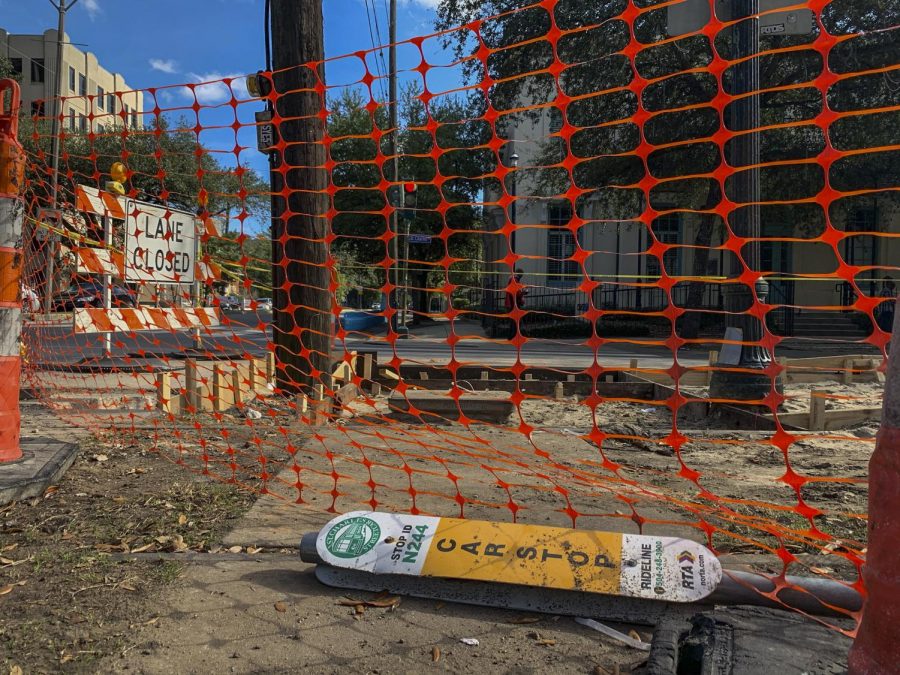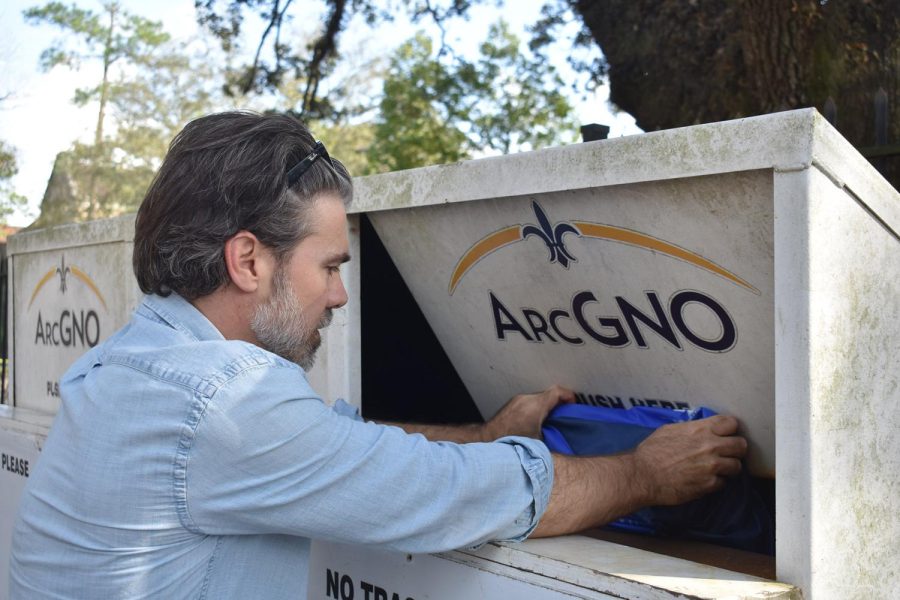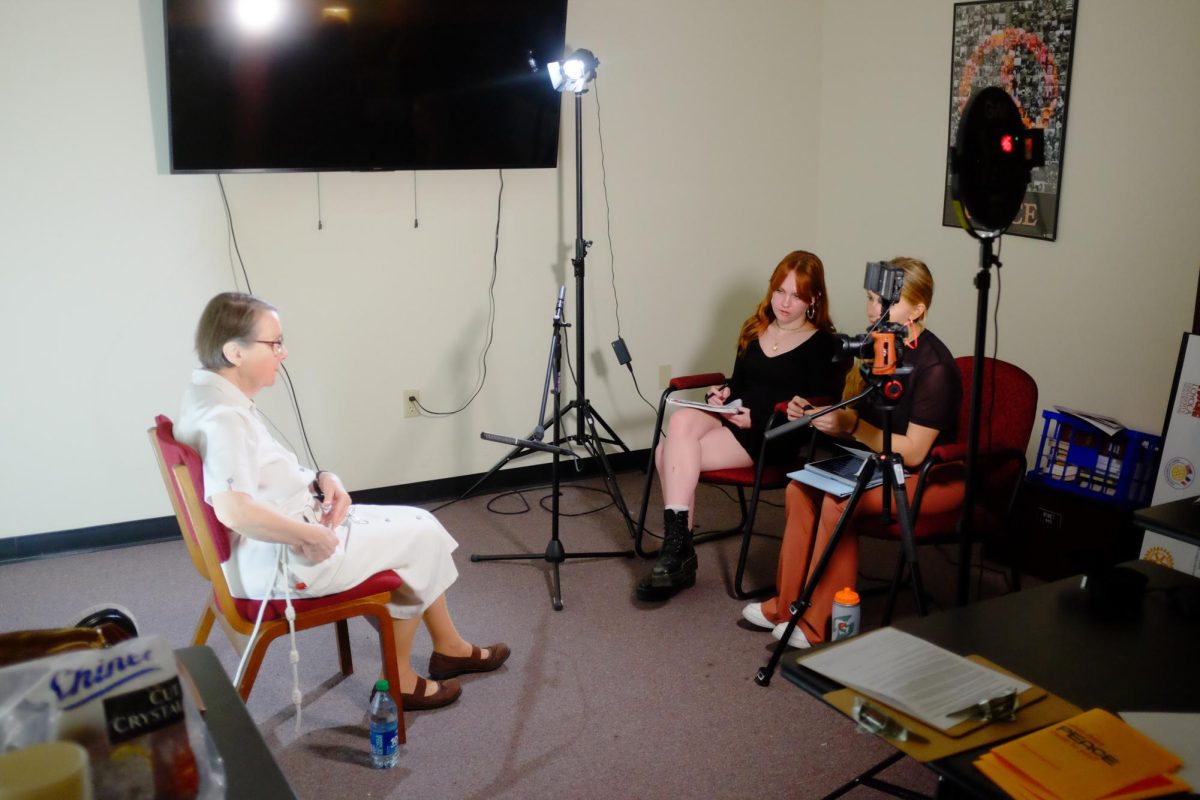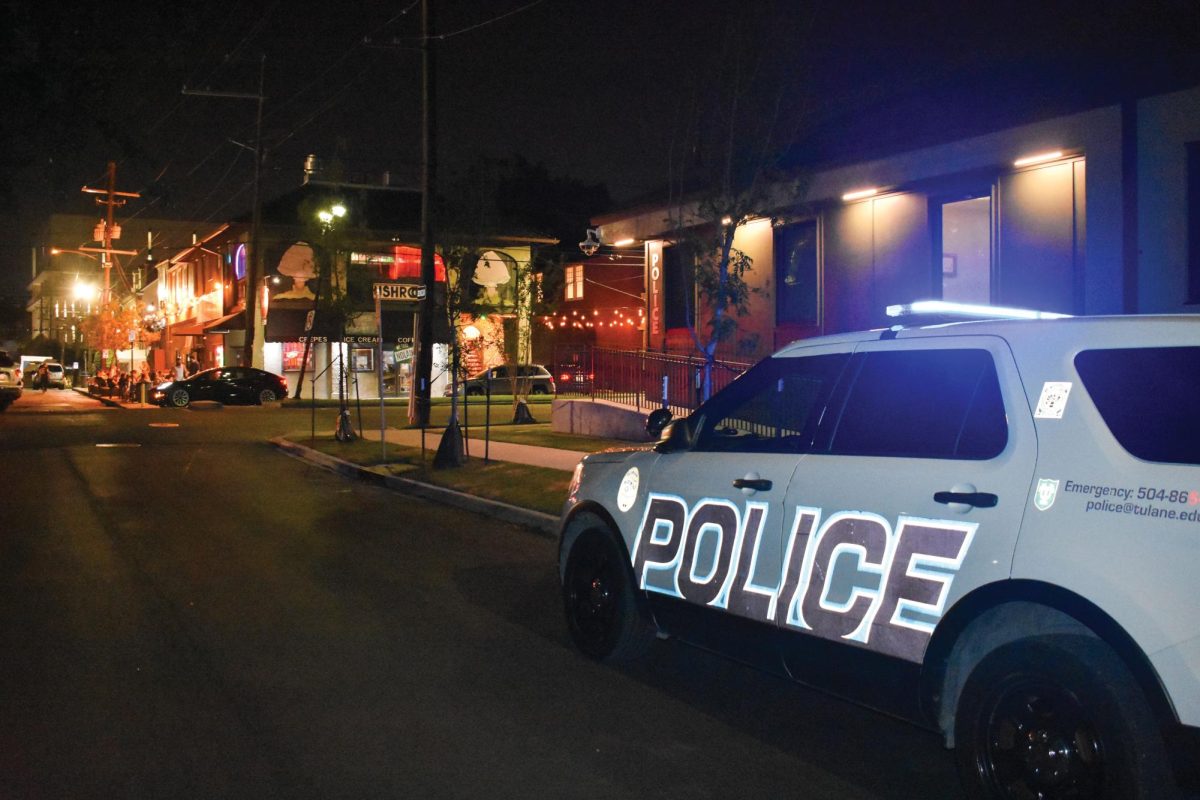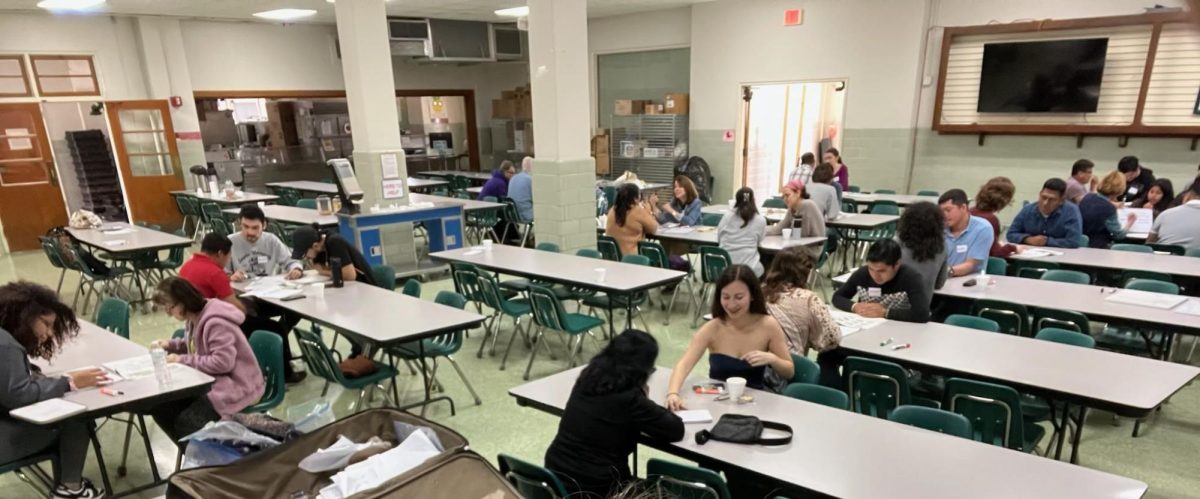Mitchell Miraglia grew up in New Orleans, but there is much of his hometown that he has never explored on his own because he is in a wheelchair and can’t ride the St. Charles streetcar. But thanks to a lawsuit he filed in 2016, six stations on the line are currently undergoing construction to become accessible and the city hopes to complete the construction in the next two months.
Miraglia, 63, was born with cerebral palsy and relies on the Canal streetcar line, which has wheelchair accessible cars, and the RTA paratransit bus on a near-daily basis, but Miraglia has always had his sights set on riding the St. Charles streetcar.
In 2016, civil rights attorney Andrew Bizer agreed to help Miraglia and two other plaintiffs sue the City of New Orleans and RTA for what Miraglia said was a violation of the Americans with Disabilities Act, which requires that all public transport has either a lift or ramp for wheelchair accessibility.
The city agreed, in a 2017 settlement, to renovate six stops on the St. Charles line. The changes will include ramps and turnarounds for wheelchair access and detectable warning surfaces that will alert people with visual impairments of uneven ground and upcoming crosswalks. One wheelchair accessible car will also be added to the St. Charles line.
Construction has already begun on the stop at Jackson Avenue and the city will complete work on the stops at Louisiana and Napoleon Avenues and Carondelet and Canal Streets before beginning work at St. Charles and Carrollton Avenues, and Carrollton and Claiborne Avenues.
For Miraglia, the lawsuit wasn’t just about transportation, it was about confronting discrimination against people with disabilities.
“When I was a little boy, about six or seven, my parents and I went to a restaurant, a very famous restaurant, an upscale restaurant, and they wouldn’t even serve me because I had braces on my legs,” said Miraglia. “I have a responsibility to make it better for the generations to come.”
While Miraglia and Bizer both said there is a long way to go with regards to sidewalk repairs and the construction of local buildings before New Orleans is an accessible city, Miraglia said that the construction of accessible stops on the St. Charles streetcar will change what his daily life looks like.
“That’s gonna mean freedom. The only word you can use for it is freedom,” Miraglia said.







